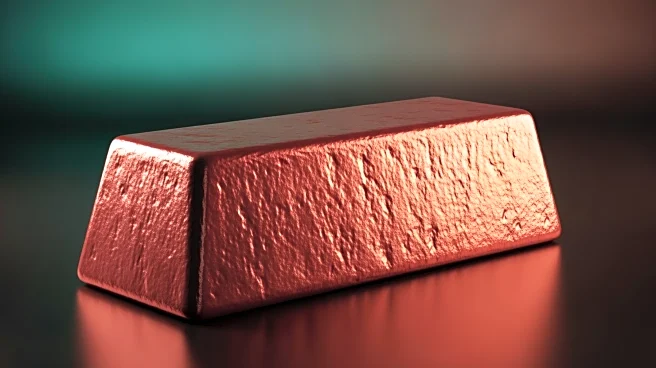What's Happening?
A new study led by Robert G. Endres from Imperial College London has introduced a mathematical framework that questions the likelihood of life arising from nonliving material on early Earth. The research suggests that the spontaneous emergence of life may
have been far less probable than previously thought. By applying principles from information theory and algorithmic complexity, Endres estimated the improbability of a protocell, the simplest form of life, assembling itself from basic chemical ingredients. The study highlights the immense challenges posed by the natural formation of organized biological information under prebiotic conditions, likening it to the improbability of creating a coherent article by randomly tossing letters onto a page.
Why It's Important?
This research has significant implications for our understanding of life's origins, suggesting that current scientific models may lack key elements necessary to explain the emergence of life. The findings challenge the notion that random chemical reactions and natural processes alone could account for the complex molecular organization required for life. This could prompt a reevaluation of existing theories and encourage the search for new physical laws or mechanisms that might have facilitated life's emergence. The study also touches on the speculative idea of directed panspermia, though it remains a controversial hypothesis. Overall, the research underscores the need for a more mathematically grounded approach to one of science's greatest mysteries.
What's Next?
The study opens the door for further exploration into the physical principles that could have enabled life's emergence from nonliving matter. Researchers may focus on identifying new mechanisms or laws that could overcome the informational and organizational barriers highlighted by Endres. This could lead to a deeper understanding of the conditions necessary for life and potentially inform the search for life beyond Earth. The study also invites interdisciplinary collaboration, merging mathematics with biology to tackle the profound question of how life began.
Beyond the Headlines
The research raises ethical and philosophical questions about the nature of life and our understanding of existence. It challenges the scientific community to reconsider the assumptions underlying current models of life's origins and to explore alternative explanations. The study's implications extend beyond biology, touching on broader questions about the universe's capacity to support life and the potential role of intelligence in life's emergence. This could influence future scientific inquiry and philosophical debates about humanity's place in the cosmos.















